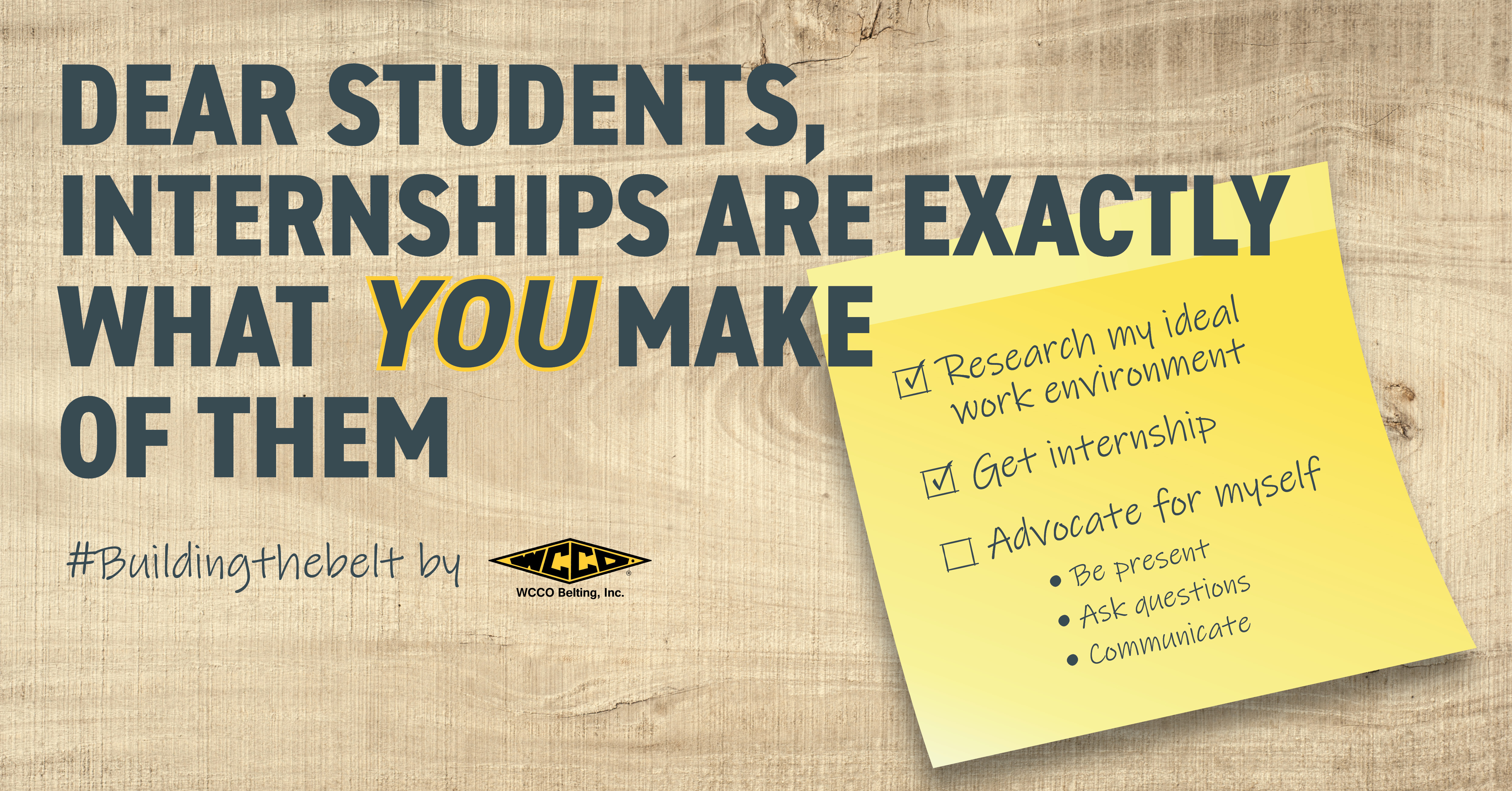Dear students, internships are exactly what YOU make of them, Blog Post

It’s the time of year for college students to start looking for summer internships. Internships provide real world opportunities to test your knowledge and help to better identify your desired career path, while employer’s benefit from an extra pair of hands to help with projects and workload. It can be a positive experience for both parties if job skills and expectations are aligned. On the other hand, a lack of communication and misperceptions can jeopardize motivation and productivity quickly.
Students tend to believe in the extremes when it comes to internships. Either you will be stuck in a mundane desk job or insanely busy. While that can happen, all internships have one thing in common: they are exactly what you make of them. If the employer fails you with an absent supervisor or impossible task list and you don’t do anything to save your summer, you are both at fault.
Based on feedback gathered by past interns from both WCCO Belting and other area businesses, here is a collection of tips to help students achieve a valuable summer of learning.
Discover what YOU like
Start by identifying a variety of experiences that you might enjoy. Put in some desk research, reach out to professionals in areas you may be interested in, check if job shadowing is available or how businesses in your intended occupation are promoting internships. Identifying the options is the first step in discovering what industry and environment you should test drive first. This is a low-risk time in your career where a diverse resume may be beneficial. It can demonstrate your open-mindedness to tackle a wide variety of jobs
Determining your ideal work environment will also involve the level of sociability you desire in the workplace. Do you like working as a team or by yourself? What is your personality type? What is your communication style? Do you want to be part of a large corporation, a small company, or a startup? Do you work better with creative freedom or a structured approach? The best way to answer these questions is to get involved, gain experience, and branch out.
Throughout your internship, don’t forget to continually self-assess your potential career path. Ask yourself, “Can I picture myself with this employer long term,” or, “What are my areas of growth if I was here full time?” If you find success at your position and your employer desires a longer-term relationship, you want to be sure it’s the right fit.
Advocate for yourself
A common theme from past intern feedback was how work ethic and connecting with others were the biggest contributors to their success. Treat your internship as a long interview. Advocate for yourself by showing up on time, being present, and connecting with people. As the new person in the room, you may not find yourself on every project team you want, but the more you advocate for yourself the higher you’ll be able to climb.
The collection of interviewees also agreed that you can’t be scared to ask questions. Take advantage of the time you have with the professionals you’re working with. Ask why things are done a certain way, what strategies and practices they find most successful, and what tips they have for you to progress in the profession. Find someone who will give you candid answers, even if they may be difficult to hear. Progress often stands on the back of the painful truth.
Another way to advocate for yourself is by developing your soft skills. Social and emotional intelligence are becoming more important in today’s world, especially with the growing focus on mental health. Many jobs are won or lost because of a lack of these skills, so the more you can educate yourself, the more success you’ll find in relationship building and influence.
Get others on board
As an intern, you are the new kid on the block with little authority and three short months to accomplish your tasks. If you are part of any group projects or find yourself wanting to change something in the company for the better, you need to create buy-in. This must happen with your supervisor, along with anyone else who’s impacted, for your desired outcome to stick. The easiest way to get buy-in is to build relationships with the people you work with. Seek out opinions from others; you will be surprised what you can learn that is not in a textbook. The more you learn, the more ideas you’ll have, and the better the chance you’ll get to implement them.
Building relationships goes both ways. Not only do you need to get others on board with your plans, but you need to be willing to get on board with theirs. Your supervisor, and the company, may do things differently than what you were taught in school or how you believe it should be done. This can be an exciting opportunity to ask questions and voice new ideas. Your fresh perspective will be appreciated, but don’t forget to ask questions to fully understand the process and reasoning.
In the end, generating a high value internship is the responsibility of both the employer and the student. If students do the research to identify the most ideal internship environment for their needs, learn how to advocate for themselves, and practice communicating and collaborating throughout the summer, a second internship or full-time job offer could easily result.

